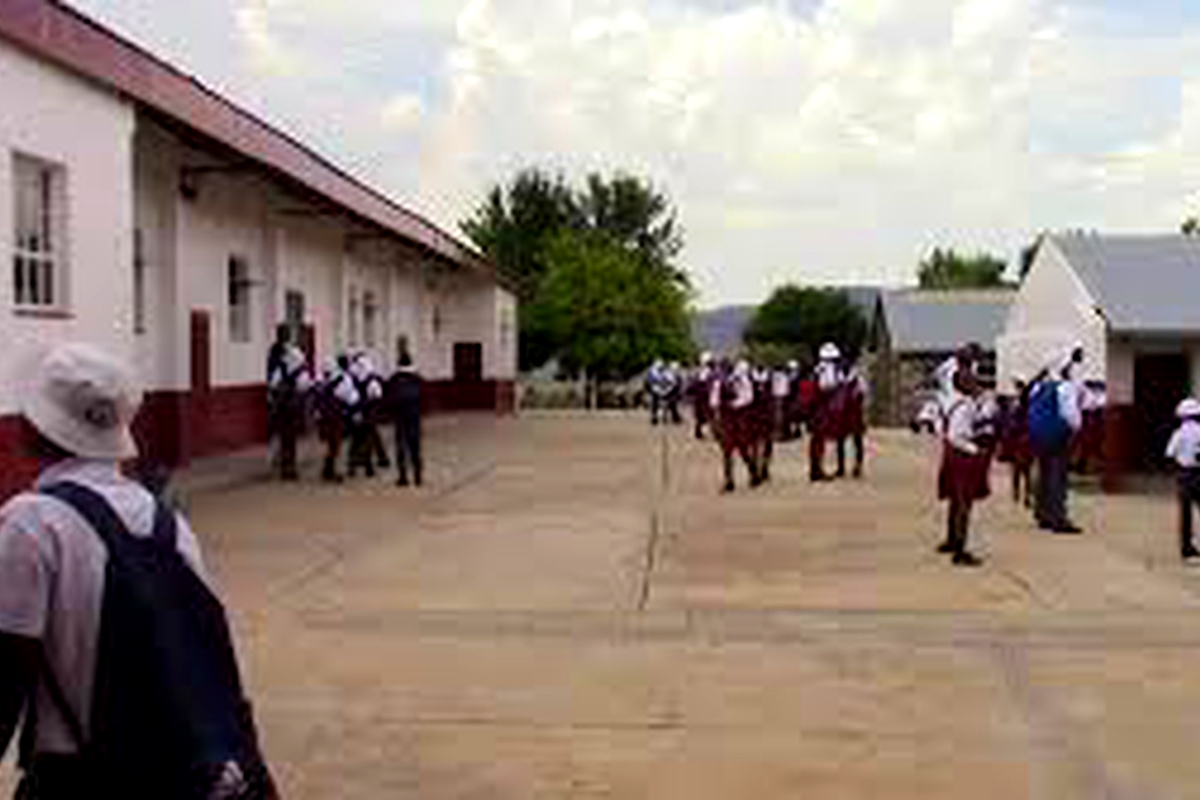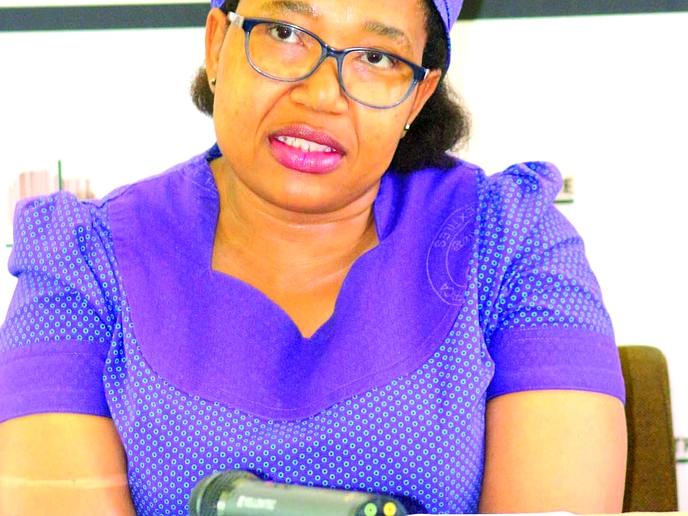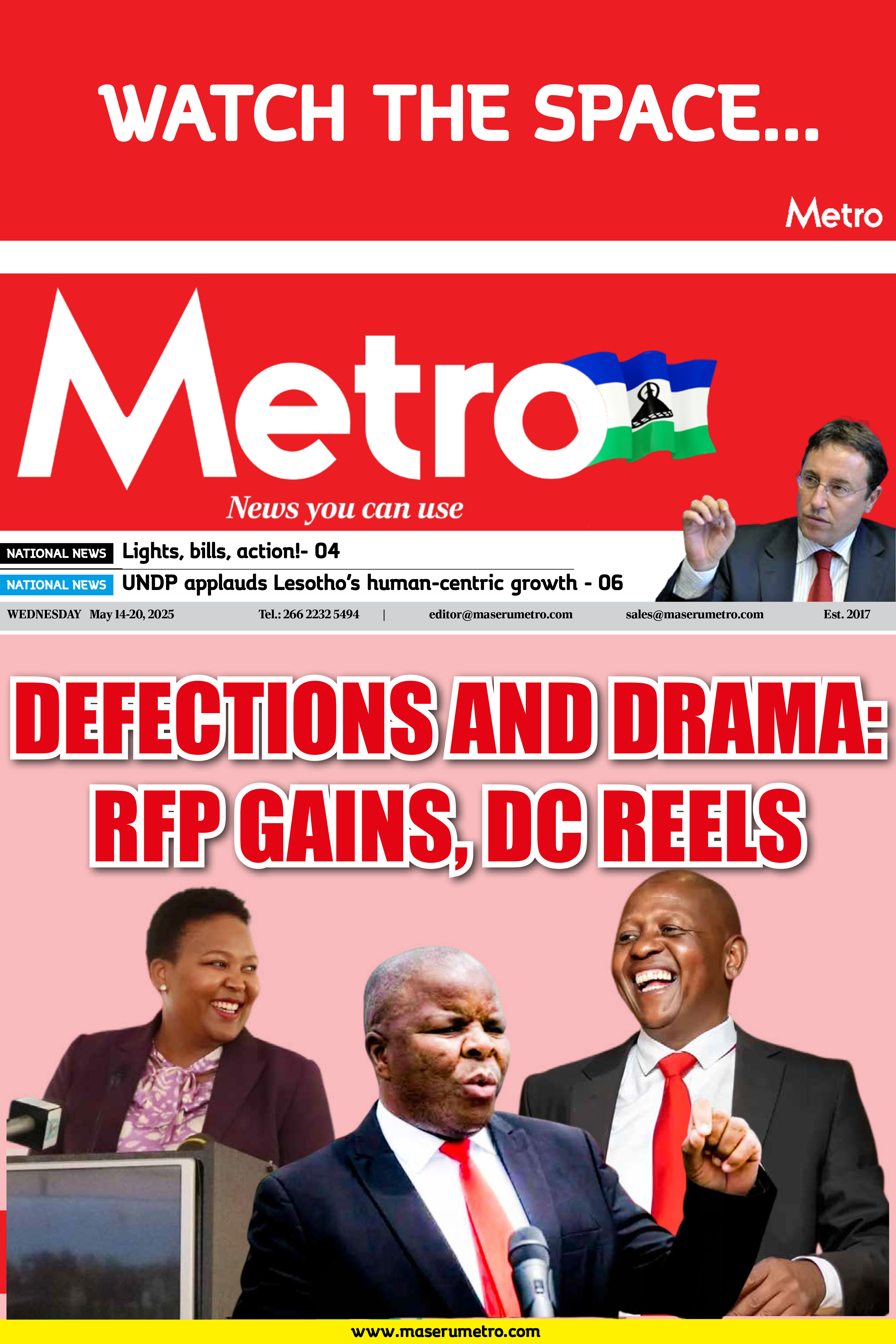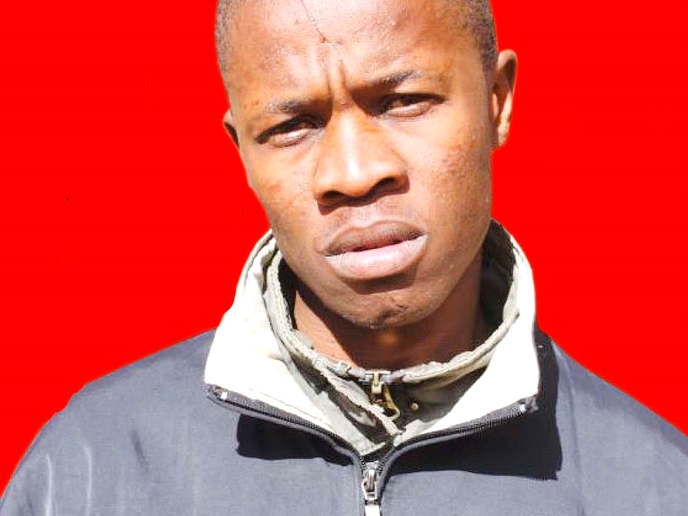Consequences of the nationwide teacher strike that was instituted by public school teachers starting from 2018 and reached its climax in 2019, are rapidly manifesting themselves in Lesotho’s education system. A significant number of public schools, especially those in the rural areas have seen a sharp decline in their student rolls as more and more parents feel that they no longer provide quality education to their children. They argue that teachers leave their children unattended for long periods of time thus giving them ample time to experiment with drugs and exposing them to early marriage.
news
March 23, 2020
MALEFETSANE SOAI
5 min read
Public education system under strain as private schools thrive

public school
Seabata Khaebana, 36, of Nazareth in Maseru has no permanent job - he sustains his family through casual construction work but he took a decision to take his youngest child to a local private school starting in 2019 where he has to pay over M1 200 per annum in tuition fees.
“Quality of education at local public schools is depressing; I want the best education possible for my daughter. I want her to have a strong foundation. Public school teachers no longer have passion to teach our children. They take their own children to private schools – so what does that say about the quality of education they give to our children?” he asks.
Seabata’s views are shared by many parents who feel that the future of their children is blurry as long as the government does not come up with a viable intervention to redeem the tinted image of the public education system.
According to one of the founders and principals of local private schools in Nazareth, Ms Matšeliso Sane of Smart Minds English Medium School, the teachers’ strike has been a huge blessing to them.
“We have been receiving new learners half-way through the year in 2019 from frustrated parents who took their children out of local public schools. In 2020 the number of new learners increased dramatically - more than at any other time,” she says. Another local private school, Livingstone English Medium, according to the principal Mr Mahloko Mosebinyane, also received a windfall of learners at the beginning of 2020 and the school expects more.
These pupils he says are from all the 13 public primary schools and three secondary schools in the Machache area.
Enjoy our daily newsletter from today
Access exclusive newsletters, along with previews of new media releases.
According to another principal who spoke on condition of anonymity, all local public primary schools have been affected.
“In our school, our roll was over 600 last year - this year we are over 100 short of that number. Other schools have suffered even more,” he said.
In addition to private schools making a killing from government’s neglect of the public education system, remedial class centres have mushroomed all over the country - targeting mostly high school students who performed poorly at the end of last year’s final examinations.
Shrinking school rolls are going to hit the teachers the hardest. In a worst case scenario, if this trend of learners leaving public schools goes on unabated, many teachers will be transferred to remote areas far away from their homes or laid off as the learner-teacher ratio would not allow for bloated teachers’ roll. This would be ironic because most of the concerns that the teachers’ unions raised upon embarking on strike are genuine and valid.
In the case of free primary schools, the impact will be far-reaching. The number of people who are awarded school feeding tender each year is dependent on the size of the school roll per school - the bigger the number of learners, the bigger the number of people who will be employed.
When former Prime Minister Dr Pakalitha Mosisili and his government of the time rolled out free primary education in 2000, many people had hoped that the education system in Lesotho would have improved for better by the year 2020.
In fact, in one of the principal documents that had been guiding the Lesotho government for the past two decades, the Lesotho National Vision 2020, appear these words “By 2020…Basotho will have access to quality education fully responsive to the country’s needs, accessible at all levels and limited only by intellectual ability not by income or wealth. Lesotho will have the system of education that is closely linked and well researched to enhance the students’ talents and capabilities”.
Fast forward, this looks like a pipe dream. Without any doubt, free primary education has helped many orphans and vulnerable children who would otherwise get no education at all and many of them have since completed their tertiary studies.
In 2010, when school enrolments hit 82% all over the country and with birth of the Lesotho 2010 Education Act, education was made free and compulsory. However, over the years, it has always been evident that Lesotho’s public education system’s growth is stagnant despite the successive Lesotho governments dedicating largest chunks of the national budget on education each year.
For the past 20 years funding of free primary education had always been infamously sparse; barely enough to cover basic needs of each child in school coupled with dire shortage of school facilities. The annual subvention budget allocated to schools is usually small, the government allocates M20 per child for the whole year, and it is usually disbursed late. Governance for public schools also needs general overhaul as many of the board members need capacity to steer their schools into greener pastures and lack income generating skills to supplement government’s subvention.
The new curriculum, which has been lauded by many education experts as one of the best, is poorly funded - which is one of the key concerns by the teachers - and in some cases some teachers mentioned that they use their already meagre salaries to fund some of the class activities.
Failure by government over years to retain teachers especially those in the rural areas is due to government unwillingness to offer teachers attractive salary packages. There is renewed hope since the government released a new salary structure for teachers responding to one of the key demands by teachers concerning their remuneration. In 2016, the Ministry of Education and Training formulated the Educational Sector Strategic Plan 2016-2026, a 10 year blue print.
For the government to realise the full turnaround in the public education system, corruption within the Ministry has to be fought head-on: awarding of tenders to build schools and other infrastructure that are nowhere to be found, ghost teachers and many other irregularities have been diverting millions of Maloti that were meant to revive the system into secret, faceless hands.






